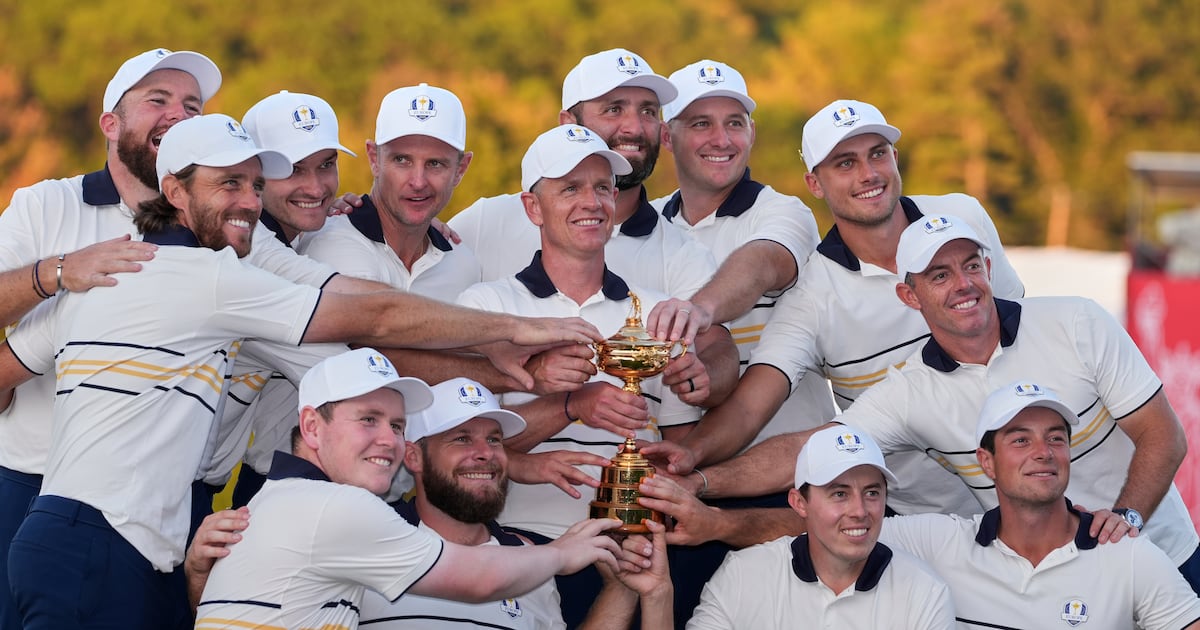Another Ryder Cup, another defeat for the Americans.
Despite the “home course” advantage Bethpage Black offered the U.S., namely the constant chirps and taunts from the crowd, the Europeans were able to drown out the noise and keep the trophy they regained in 2023 in Rome. While the Americans had some logistical advantages, they couldn’t match up to their cross-continent rivals, as this year’s European team was one of the most talented in recent Ryder Cup history.
Speaking of history, the U.S. fell into the same trap as it did in Rome two years prior by digging itself into an early hole. The Americans found themselves down 3-1 after the Friday morning foursomes, a deficit that would prove difficult to make up. The Americans had a bit more success later in the day during the four-balls by earning an additional half point, but Europe extended its lead to three heading into Saturday.
Then, the situation somehow got even worse.
Even though Bryson DeChambeau and Cameron Young managed to win the first foursome match on Saturday, Europe was not fazed and came out with three more points by the end of the morning, bringing the score to 8.5-3.5. By the end of the day, the Americans found themselves facing a seven-point deficit, something that wasn’t helped by the fact that two of their star players, DeChambeau and Scottie Scheffler, had just one point between them.
Then, Europe’s Viktor Hovland pulled out of his singles match against Harris English on Sunday, citing an injury. Though controversial given the score, this forced tournament officials to invoke the “envelope rule,” meaning both teams received a half-point each. That brought the total score to 12-5, meaning Europe needed just two of its players to win their matches — or four to tie — to keep the cup.
The deficit the Americans woke up to on Sunday morning, however, seemed to spark a fire in them, as they won five singles matches and were on the verge of completing what looked like an impossible comeback. The momentum finally shifted in their direction, too, with clutch moments from players like Justin Thomas providing the energy the Americans needed so badly after poor outings on Friday and Saturday.
@golfoncbs JUSTIN THOMAS …. WHAT A PUTT 🤯🇺🇸 #golf #rydercup #justinthomas #win
Europe, however, was well aware of the situation and knew exactly what results were needed to reach the 14 points necessary to hang onto the cup. Shane Lowry ultimately sealed the deal for his team after he came back from two holes down against Russell Henley to get the final half-point, stopping the Americans’ comeback story before it came to fruition.
Although the fight the Americans put up on Sunday was admirable, Europe’s early urgency proves something that most golf fans know about the Ryder Cup, but don’t enjoy admitting: Europe simply cares more about it than the U.S. does.
That’s not to say the U.S. doesn’t prepare well or acknowledge the event’s importance, but anyone watching can see the discrepancy in focus between the two teams’ golfers. Europeans like Rory McIlroy and Justin Rose live for tournaments like these, while the Americans appear to be ready to finish the season and start their vacations.
In fairness, the Ryder Cup doesn’t carry much weight when it comes to defining one’s golf career. The only trophies any golfer truly cares about are those that come from one of the four major championships, meaning even if a player is successful at the Ryder Cup, they won’t be remembered as well as someone who put on the green jacket or kissed the Claret Jug.
Additionally, the Ryder Cup is merely an extension of a season that, for many golfers, has been over since the British Open. Furthermore, it’s a tournament with completely different stakes, rules and format, not to mention its team-based format makes it an outlier from every other tournament, where every golfer plays for themselves.
Still, European golfers take playing the Ryder Cup to heart, while the Americans’ minds sometimes seem to be elsewhere. Whether it’s the bragging rights or capitalizing on the chance to make a statement, the tournament isn’t a season extension for Europe: it’s the fifth major.







